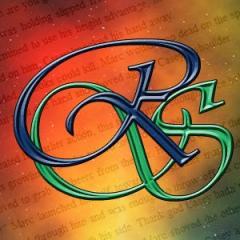Writing Tip Writing Tip: Grammar Rodeo #3
Who's ready for another Grammar Rodeo? This one focuses on Affect vs Effect and Ellipses vs Em Dashes. A thank you to Cia for taking the time to put these together. I hope you find them as informative as I do.
Grammar Rodeo #3
Those Pesky Word Choices
Affect vs. Effect
This is one of those small things that isn’t always picked out by a spellcheck, but knowing when to use affect vs. effect can be tricky for some people to remember. I have a simple mnemonic clue for authors when they use the most common meanings of these words.
Affect is a verb that means to act upon something.
Effect is a noun meaning something that occurs from some action taking place. This is a result.
Example: Sometimes your actions affect other people, creating an effect you didn’t expect. In other words, your actions do something to other people, creating a ‘result’ you don’t expect.
An easy tip: To know which one to use is to remember Affect = Act. If you’re writing that your ‘affect’ is happening to someone or something, then it is an action, hence a verb. You still have to remember which is why, but having the association can help you remember the difference between affect and effect.
Cut Off vs. Trailing Off (Em dashes and Ellipses)
Overuse of any one type of punctuation can make it hard for readers to follow your dialogue or narration, but sometimes it’s good to sprinkle in ellipses or em dashes to create a certain speech pattern or effect in the motions.
Ellipses: These indicate fragmented sentences or pauses longer than a comma would indicate. Technically, the common use in fiction make these ‘suspension points’ instead of ellipses, but many people use the term even when discussing trailing off in dialogue or narration.
Different editing style guides dictate how you use them. Either three periods in sequence with either no space between them or after the preceding word hut including one before the next word, or spaces on each side, or no spaces on either side of the periods at all, of course, with appropriate closing punctuation as needed.
Examples: In this case, the reader would read the I as a stressed word, trailing off, before the speaker begins again.
“I… don’t know why I did that.” Or
“I … don’t know why I did that.” Or
“I . . . don’t know why I did that.”
Closing punctuation with ellipses/suspension points: When the person does not resume their thought or speech, you need to indicate that with closing punctuation.
“Do you know why you…?” she asked.
“You did that because you were…,” she said.
“I can’t believe you…!” she shouted.
“I can’t believe you….” She turned away, one hand pressed against her mouth. To even think her husband had….
The biggest element of using these is that you are consistent with your style. Decide if you want them spaced/unspaced, and do it that way the entire story. Never use more than 3 points, with closing punctuation as needed. If you need… a longer pause or break than this… use narration to indicate that rather than a number of points like this……. which is not an accepted format in any style guide. And remember to use them in moderation.
Tip: If you like the ellipses a certain format, and want to ensure they don’t break at the end of a sentence due to page margins, use the Insert symbol option to select the ‘Auto Correct’ feature.
There, you can select what the program automatically changes your written ellipses into the appropriate symbol that won’t break.
Example: … could be replaced with . . . and then every time you place … in your document, it would change it appropriately and keep it from breaking at the end of a line.
Also the keyboard shortcut in Word for placing the ‘symbol’ ellipses points are control, alt, spacebar for earlier Word versions and control, alt, period for newer versions.
Em Dash
Em dashes—long dashes—are used to indicate interruptions in dialogue or narration, or they can indicate an aside. Asides are phrases within a sentence that provides more information and explains something within the sentence, but it can also be removed without affecting the meaning of the sentence.
Example:
Peter—a usually mild-mannered man—reacted angrily when he was cut off and killed the other driver.
“You’re trying to say that that Peter—”
“We have it on video. Your husband caused the crash, ma’am.” Detective Ryans sympathized with the widow, but it was best she faced it now, before the press ambushed her. She couldn’t hide from the facts.
Tip: Em dash shortcuts are included in later Word versions to prevent breaking, usually if you add two hyphens together. You can also create that shortcut in the Auto Correct feature, just like with the ellipses points. You can also use the keyboard shortcut of control, alt, the minus sign in the number pad.
Special use: Em dashes are used in a special way with dialogue punctuation when you split a line of speech with an action without using a speech tag/attribution like said or asked.
Example:
“I know it’s hard to believe”—he handed her a tissue to wipe her face—“but your husband was a well-known man, and people are going to have questions for you.”
-
 8
8







10 Comments
Recommended Comments
Create an account or sign in to comment
You need to be a member in order to leave a comment
Create an account
Sign up for a new account in our community. It's easy!
Register a new accountSign in
Already have an account? Sign in here.
Sign In Now